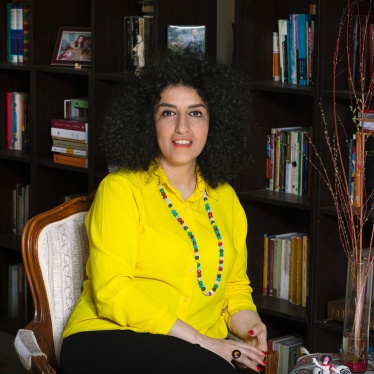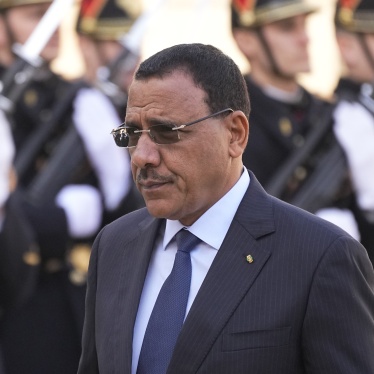I was in Doha reporting for the BBC that night in December 2010 when Qatar won the right to host the 2022 World Cup. I stood in the city’s main souk surrounded by excited Qataris waving their national flag, and watched that now-famous footage of Sepp Blatter pulling the word ‘QATAR’ from a white envelope. As Blatter’s smile was beamed in live on a giant screen the souk – and the country – erupted. After I filed my reports, my 15-minute drive home took over an hour, such was the gridlock created by jubilant fans.
Four years on, that victory is in tatters. Qatar’s win has been dogged by reports of labor abuses on football construction projects, and some observers have suggested that Qatar could lose the World Cup due to alleged corruption. The bribery allegations are explosive, sure, but the real scandal is how tiny Qatar got things so massively wrong on workers’ rights.
Winning the World Cup sparked an economic boom in Doha – stadiums to erect, hotels to build, roads to lay. Overnight it created thousands of jobs. It’s easy to forget just how small Qatar is. But its size is precisely the point. It needs foreign workers to develop, and foreign workers need Qatar to make their living. Neither can thrive without the other.
So it’s utterly perplexing why Qatar insists on biting the hand that feeds it, by trampling on workers’ rights, refusing to reform its abusive employer sponsorship system, and banning strikes. When it won the World Cup it vowed to reform its labor laws and practices. So far, it’s resisted. Why?
It’s not a question of money, expertise or – four years on – of time. And in an absolute monarchy, it’s definitely not a question of political deadlock. The truth is, Qatar has not reformed its labor laws because it doesn’t want to. Think about the message that sends.
Qatar’s bid always had its critics. Yes, it’s phenomenally hot in summer, and yes, it has little footballing pedigree. But it’s also a stable, wealthy nation that can host a safe World Cup without saddling itself with debt. And it would be a real “legacy” for FIFA to host the world’s first mega-sporting event in the Middle East, a region which, surely, deserves something to smile about for a change.
Qatar says those who criticize it are racist. But this is not about race, it’s about rights. Until Qatar’s migrant workers can enjoy the same rights as any other person – freedom to leave, to complain, to choose – it will continue to haemorrhage goodwill.
Critics don’t hate Qatar. They are just furious about how its government treats the very people it invited there to help build it.








